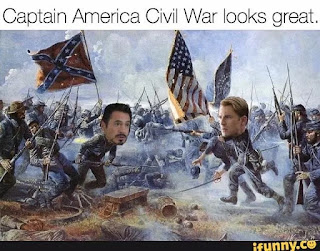 Based on other reflections I have read, it seems that many of my classmates think that they consume more media now than they did before. This is where I differ. I believe that I have always consumed a large amount of media, even before this project, but because of the tools that this class has given me, my critey sense has been heightened. I have become more sensitive to fallacies, and the techniques used by media outlets to get consumers to persuade themselves. I have always consumed a large amount of media, but now, it is easier to notice where I have become a victim to advertisers. Succumbing to advertising techniques does not even have to apply to an actual brand that is selling a product. A perfect example of this can be found in Amos Karlsen's blog post about Lars Anderson and holes in his logic about archery.
Based on other reflections I have read, it seems that many of my classmates think that they consume more media now than they did before. This is where I differ. I believe that I have always consumed a large amount of media, even before this project, but because of the tools that this class has given me, my critey sense has been heightened. I have become more sensitive to fallacies, and the techniques used by media outlets to get consumers to persuade themselves. I have always consumed a large amount of media, but now, it is easier to notice where I have become a victim to advertisers. Succumbing to advertising techniques does not even have to apply to an actual brand that is selling a product. A perfect example of this can be found in Amos Karlsen's blog post about Lars Anderson and holes in his logic about archery.Knowing everything that I currently know about advertising techniques, I am now much more conscious of how advertisers are trying to get me to convince myself something. One of the coffee shop discussions we had in the Latin America unit, was about identity. A possible conclusion about identity that we came up with (if I remember correctly) is that identity first originates from what others think about you, and if you believe those things that are told about you. This is where advertising and media comes in. Advertisers can only do so much to convince consumers, but ultimately, the true convincing is how the consumer convinces themselves- if they convince themselves that the advertiser's claims are false and refuse to be persuaded, or if they convince themselves to consume to product (or idea) that is being portrayed.
This is why being an educated consumer is very important. It is easier to see through the (often) lies that advertisers feed us, thus weakening the voice of advertising and making it easier for us to convince ourselves if we really want to consume the product or idea.
One of the most surprising things that I've learned from keeping this blog is that super heroes have way more messages that are being conveyed, you just have to dig a little bit into the history of the production, writers, and film makers. A good portion of my media blogs were centered around superheroes and the message that are conveyed by them. It just takes a little digging, and the messages are clear.
Truthfully, I don't think any of us will remember the specific details of critical thinking. Five years from now we will not watch a commercials and whisper to ourselves "red herring," or "glittering generalities." The only person that would actually still do that would probably be Mr. Starace. However, if we remember the main points of this semester, on how to be better critical thinkers about our consuming.
 |
| When critical thinking, healthy skepticism is key |
































